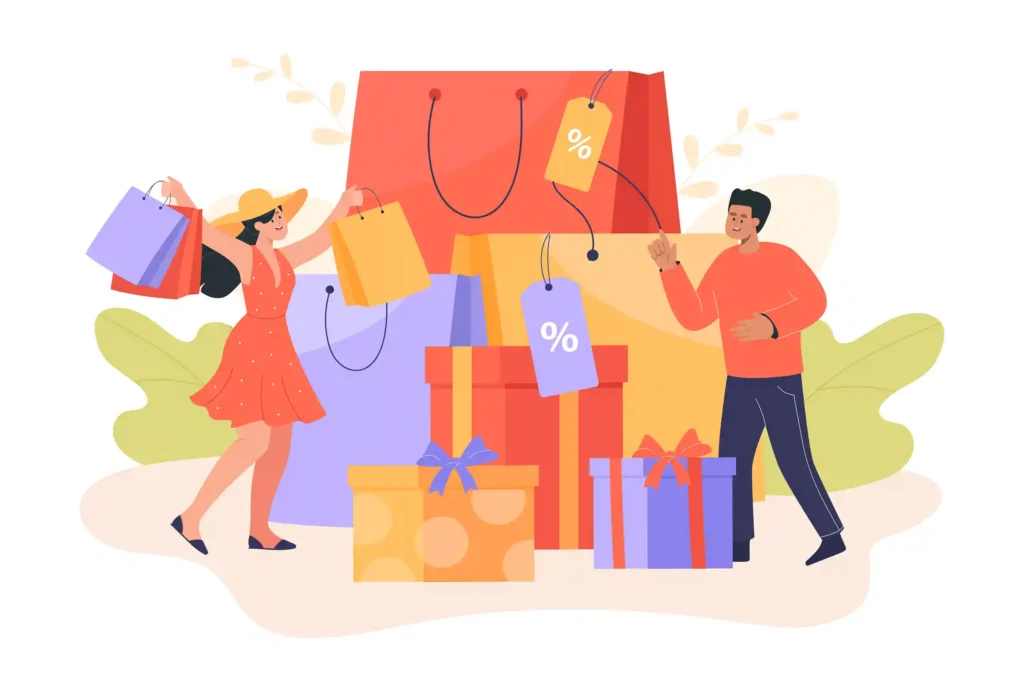
When someone talks about the best bargain, they generally focus on making money. A good bargain does not only mean paying less. Also, it is about obtaining the most value from what’s spent. The best thing happens when an item or service is useful as well as of high quality and satisfaction in exchange for the price that is paid. It must meet the user’s requirements and provide rewards throughout. That is an excellent deal that will make living easier, more enjoyable, or more pleasurable without the risk of financial regret or anxiety. If you’re wondering, How does a consumer know whether a purchase may be a good deal?, it starts here—with balancing price and long-term value.
It is also a concept of opportunity cost. That means money that is spent at one location isn’t readily available to be used for another. The smart buyer will consider this before making a purchase. If the purchase stops them from purchasing something that is more valuable in the future, it might not be the best bargain after all.
Key Indicators of a Good Deal
Many websites show price differences. This helps you find the seller offering the lowest price. A few tools also show the past history of an item’s cost. If it is cheaper than normal, you can see that it is an ideal time to purchase. Still wondering, how does a consumer know whether a purchase may be a good deal? One sign is understanding the normal pricing trends and spotting true drops.
Return and warranty policies are crucial indicators. An easy and clear return policy can make the purchase much more favourable. It assured that it doesn’t meet the expectations. Certain deals might look appealing; however, if they can’t be exchanged or returned in a simple manner, it’s dangerous.
There are times when additional costs, including delivery costs, tax, restocking, or other charges, can make deals more expensive. Reviewing the total cost that includes hidden charges is an excellent practice for those who want to make the best choice.
Timing and Seasonal Shopping
The time of the year as well as the date of purchase can also determine if the deal is worth it or not. There are some products that go at a discounted price during certain seasons or holiday seasons. As an example, many stores have huge discounts on Black Friday, end-of-season sales or the back-to-school weeks. Preparing ahead and waiting for the right time to shop can result in more savings.
The technology industry also has its fashion. Every time a new mobile or laptop model launches, it is usually the previous model that is priced lower. People who don’t need newer models may see significant value in purchasing an older model. It functions identically, but it costs less. Still unsure. How does a consumer know whether a purchase may be a good deal? Look for discounts that align with product cycles or clearance events.
It is also known as dynamic pricing. Many websites and apps alter prices frequently throughout the course of a day. It happens for airline tickets and hotels, as well as online stores. In some cases, checking at an earlier time or with an alternative device can result in the best price. The timing of your actions can make a huge difference. The best deal isn’t all just luck. The key is watching the calendar to know what time the price is most likely to decrease.
Evaluating Your Own Needs and Budget
Before buying something, before purchasing anything, you should determine if the item you are purchasing is needed or not. Some people are enticed by promotions and sales; however, later on, they discover that they did not need the product essential to their lives. Being aware of your requirements will help you avoid spending funds. It’s important to think about how frequently the product will be utilised. If something will only be occasionally used, it may be worth it or even at a reduced price.
Picking something with longevity and a high level of performance gives you greater satisfaction in the future. If someone is aware of their true wants and limitations, their chances of completing an informed and pleasant purchase increase. So, how does a consumer know whether a purchase may be a good deal? When it fits into the budget, fulfils a real need, and offers enduring quality.
Psychological Traps to Avoid
Customers are often faced with tactics that affect their choices without their knowledge. They rely on emotions rather than logic and can cause people to spend more than they anticipated. Another common technique is to use scarcity marketing. The fear of being left out makes people make quick decisions, even if the item is not required. A moment of pause and consideration of the options can lead to greater results.
An additional trap is the effect of anchoring. The anchoring effect occurs when a retailer has a higher price at the beginning, alongside a reduced price. This lower cost appears like a good deal, but in reality the price that was originally displayed is not true. A comparison of prices between different stores can provide a more accurate image than relying on only the discount mark.
It is not only the myth of sunk costs. Being aware of these mental traps helps individuals remain calm and make better decisions. The power of clear thinking is greater than flashy gestures and mental tricks. Ask again: how does a consumer know whether a purchase may be a good deal? As long as you stay grounded in reality and avoid emotional decisions, you will be able to succeed.
Smart Shopping Habits and Tools
The art of smart shopping isn’t hurrying. It’s about planning and comparing the best techniques to obtain more effective results. The right habits can save you time, money and also energy. A good practice is to use cashback or loyalty programmes. Numerous stores provide reward points or points if clients shop frequently. In time, these points will accumulate, and you can get discounts or even free products. Cashback applications pay a tiny sum of cash after each purchase and is an excellent reward.
Sometimes, purchasing used or refurbished goods can offer great prices. When the item comes from a reliable seller with a valid guarantee, the product will function as if brand new. There is no doubt that this is an excellent method for getting quality products at a lower cost. The joining of deal communities is a wise choice. Typically, these groups offer real-time discounts and genuine reviews as well as personal stories about the products they sell. The groups are often able to spot deals that the regular advertisements aren’t able to show. The smartest shopping doesn’t rely on luck. It relies on community, research, and knowing exactly how a consumer knows whether a purchase may be a good deal.
Final Thoughts
Finding the best product for the correct price is an art. This requires practice, preparation, and clear thought. The smart buyer doesn’t simply look at price. An intelligent buyer is aware of qualities and individual needs, as well as longer-term value. People who think before they buy tend to make better choices. They look through reviews, contrast prices, and remain within their budget. Don’t let flashy ads or flashy offers deceive them.
The ability to become a smart consumer can be beneficial in many ways. It helps save money, provides happiness, and helps build good habits that will last for years to come. Everyone can improve their buying habits through small, deliberate actions every day. Take inspiration from financially savvy individuals—just consider how figures like Andrew Wilkinson’s net worth reflect years of mindful decision-making and strategic investments. And at the end of the day, when you’re in doubt, just ask: the answer always lies in awareness, timing, and value.
FAQs
How does someone know if a product is a good deal?
A product is a good deal when it gives good quality for the money. It should be useful, last a long time, and match the need of the person buying it.
What should people check before buying something on sale?
They should look at reviews, check return policies, compare prices, and think whether they need it. These steps help them make better choices.
Why is timing important when shopping?
Some items cost less during certain times. Waiting for sales or end-of-season discounts helps save money and find better value.
What happens if someone buys something they do not need?
They might feel regret later. The money spent could have helped buy something more useful. It is better to think before buying.
How do online tools help with smart shopping?
Online tools help people watch prices, read reviews, and find deals. They make shopping easier and help find better offers.


